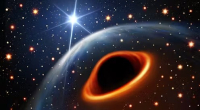
Ewan D. Barr
Project scientist for the Transients and Pulsars with MeerKAT (TRAPUM) collaboration, Max Planck Institute for Radio Astronomy
My primary research interests are pulsars, radio telescopes and high-performance computing. At the Max Planck Institute for Radio Astronomy (MPIfR) in Bonn, I lead a team of scientists, software engineers and systems architects who specialise in the development of high-performance instrumentation for radio telescopes around the world. Our instruments aim to provide universal processing systems, capable of handling the myriad use cases for radio telescopes, from pulsar observations to spectroscopy and very long baseline interferometry. We work with cutting-edge, commodity off-the-shelf GPU and FPGA accelerators to push the limits of what our telescopes can do.
I also serve as the project scientist for the both the Transients and Pulsars with MeerKAT (TRAPUM) collaboration and the MPIfR-MeerKAT Galactic Plane Survey (MMGPS). The TRAPUM collaboration uses the MeerKAT radio telescope in South Africa to hunt for radio pulsars in places of special interest throughout the Galaxy and beyond. Through observations of supernova remnants, gamma-ray sources, globular clusters and nearby galaxies we have discovered more than 100 new pulsars, including exotic systems that probe fundamental physics. The MMGPS is a unique pulsar and imaging survey that uses MeerKAT to observe the Galactic plane at multiple frequencies. Its goals are to discover new pulsar systems and probe the galactic magnetic field. To enable the TRAPUM and MMGPS projects, as well as the ERC-funded MeerTRAP project, which searches for fast transients with MeerKAT, my team and I at the MPIfR built and operate two powerful computing clusters located on the MeerKAT site. One of these clusters provides MeerKAT with the ability to perform high-time resolution observations in may hundreds of different directions at the same time. The other provides the means to analyse the data, to search for extreme relativistic pulsar binary systems.
My team and I work on several other instrumentation projects. These include the ERC-funded, Crete-based ARGOS telescope, the joint Max-Planck-Gesellschaft (MPG) - Chinese Academy of Sciences (CAS) funded cryogenically-cooled phase array feed programme and the pan-European ERC-funded radio technology programme RADIOBLOCKS. We also operate the SARAO and MPG-funded, SKA-MPG telescope, the first dish of the Square Kilometre Array radio telescope.

Black hole, neutron star or something new? We discovered an object that defies explanation
Jan 19, 2024 10:07 am UTC| Science
Sometimes astronomers come across objects in the sky that we cant easily explain. In our new research, published in Science, we report such a discovery, which is likely to spark discussion and speculation. Neutron stars...
- Market Data




































